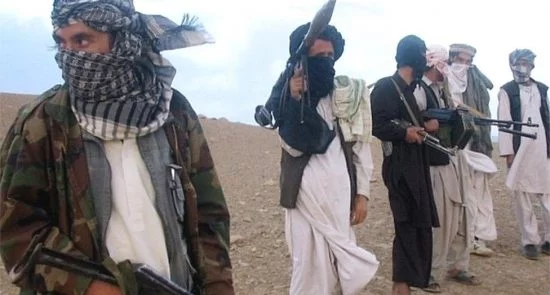Afghanistan, Politics, Security September 1, 2019
Short Link:Taliban Launch ‘Massive Attack’ on Northern Afghanistan City, Government Says
The Taliban have launched a major attack on the northern Afghanistan city of Kunduz, igniting gunbattles with security forces, government officials said Saturday.
Ariana News Agency-
The “massive attack” was launched from several points throughout the city overnight, according to Sayed Sarwar Hussaini, a spokesman for the provincial police chief.
“I can confirm that intense gunbattles are going on around the city, but the Taliban have not been able to overrun any security checkpoint,” he said.
Afghan officials say 60 Taliban fighters have been killed in the assault. The bodies of three civilians and two security force members were taken to a hospital and at least 80 civilians were wounded, including women and children, according to provincial health director Esanullah Fazeli.
Nine of the victims were wounded as a suicide bomber detonated his explosives at a major intersection in the city, following a push by Afghan security forces to move the Taliban toward the outskirts, said provincial council member Ghulam Rabani Rabani.
The Taliban also took control of several positions in civilian areas, including a hospital, although officials say Kunduz was still in government control.
Electricity and most telephone communications have been cut in the strategic city, located about 200 miles north of the capital, Kabul. In response to the attack, government airstrikes have limited the insurgents, but they have yet to be driven from their positions.
“The city is completely empty, shops are locked, people aren’t moving, and light and heavy weapons can be heard in several parts,” a local resident, identified as Khaluddin, told Reuters.
The fighting occurs as peace talks were scheduled to continue Saturday in Qatar, with their leaders and U.S. officials in the process of attempting to end the 18-year war. Reports signaled they were close to reaching an agreement in recent days.
The Taliban control or influence roughly half of Afghanistan and are reportedly at their strongest since the U.S. invaded in 2001. The United States ended its combat role in 2014, although 20,000 U.S. and NATO forces remain in the country. They still train and support Afghan troops fighting the Taliban, who fear if the U.S. leaves, it will make them vulnerable.
Insurgent groups are continuing to negotiate with the U.S. and have demanded that all foreign forces leave the country.










